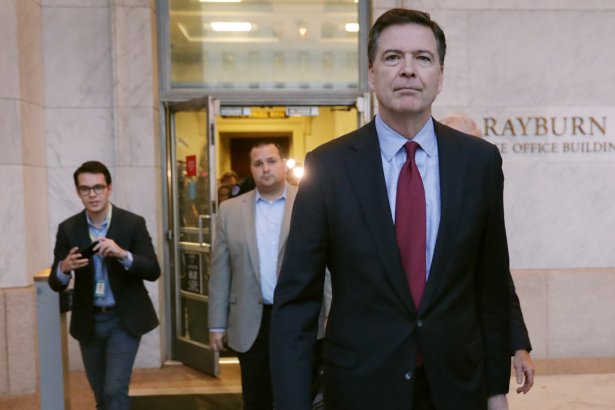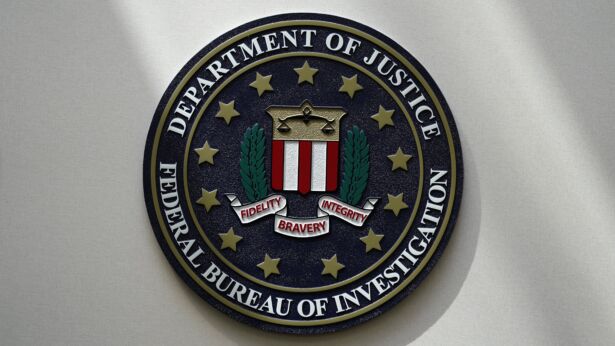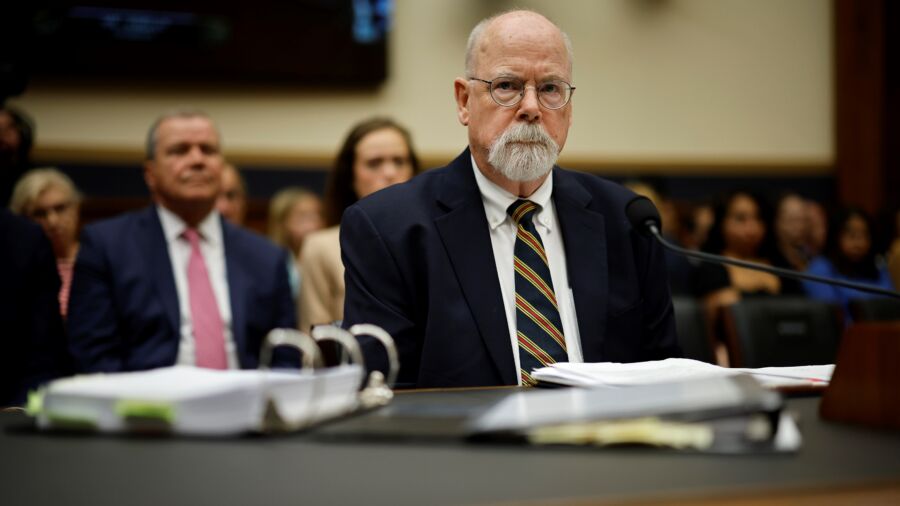After four years of working out of the public eye, special counsel John Durham arrived to testify before the House Judiciary Committee on the morning of June 21 about the findings of his long-anticipated report.
Republicans applauded the report, released to the public on May 15, as a vindication of former President Donald Trump’s claim that he had been unfairly targeted by the FBI and others in the federal government as part of its investigation into allegations that Trump colluded with Russia in the 2016 election.
Durham’s report marked the end of a seven-year saga of probes, investigations, and allegations against Trump and his allies that began in 2016 following the WikiLeaks release of thousands of emails from then-Secretary of State Hillary Clinton and the Democratic National Committee (DNC).
The FBI investigation into Trump and his associates began on July 31, 2016 with a probe into the potential role Trump associate George Papadopoulos played in the WikiLeaks document dump. This probe, codenamed “Crossfire Hurricane” by the FBI, sought to establish whether the Trump campaign had played any role in the leak, and stemmed from a conversation Papadopoulos had had with an Australian official in a London bar on May 6 of that year.
Eventually, the FBI probe was transferred to special counsel Robert Mueller, a former director of the FBI. On April 18, 2019 Mueller’s report was released to the public, but it “did not establish that members of the Trump campaign conspired or coordinated with the Russian government in its election interference activities.”
After Mueller’s report was released, then-Attorney General William Barr placed Durham in charge of another investigation to look into the origins of Crossfire Hurricane and the investigation of Trump’s associates.
Durham’s report concluded that no collusion with Russia took place, vindicating Trump’s long repeated claims that the Russia investigation was a “hoax.”
The claim that Trump colluded with Russia was found to have originated with Clinton amid the fallout of her email scandal as part of an effort to shield her campaign from that scandal, where Clinton was found to have held classified government information on a private server.
Durham highlighted the distinct approach the FBI took to intelligence it received from a trusted foreign source indicating that the Clinton campaign planned to smear Trump by tying him to Russian President Vladimir Putin. The Clinton campaign’s goal, the intelligence said, was to divert attention from the scandal concerning Clinton’s use of an unauthorized private server to transmit top-secret government emails.
Despite ultimately being proven to have had no basis in fact, the claims from the Clinton campaign cost taxpayers around $32 million.
Durham found that the FBI probe was “seriously deficient” and undertaken without any evidentiary basis, and he ruled that the agency was blinded by confirmation bias in its efforts to investigate Trump and his associates.
However, while the report left many Republicans feeling vindicated, lawmakers have also expressed concerns.
Here are some key points and questions that might be raised at Durham’s hearing.
Major Players Not Interviewed
A key Republican contention with Durham may be the lack of interviews of several key players in the collusion narrative.
Among others, Durham did not interview former Attorney General Loretta Lynch, former FBI Director James Comey, or DNC operative Charles Dolan.
As some of the top federal law enforcement officials, Lynch and Comey played key roles in the investigation into Trump.

Dolan was directly responsible for many of the claims that ended up in the Steele dossier, a discredited Clinton-funded tract written by Christopher Steele. The dossier served as a basis for later efforts to receive Foreign Intelligence Surveillance Act (FISA) warrants against several of Trump’s associates, including Michael T. Flynn, Paul Manafort, Carter Page, and George Papadopoulos.
The warrant against Page was ultimately executed, and was found in a later investigation to have been riddled with 17 omissions of fact and errors.
Comey has commented on the probe, saying that while it shows the FBI made “mistakes,” his FBI handled the 2016 investigation “the right way.”
Republicans will likely seek clarity from Durham on why these key players were not interviewed as part of the probe.
As a corollary, Republicans will likely also look into Durham’s relatively light investigation into an August 2016 memo by then-CIA Director John Brennan.
That memo, sent to former President Barack Obama, Lynch, and Comey revealed that the CIA had received credible foreign information that there was no substance to the collusion allegations, and that they were instead the result of an effort by Clinton to distract from her email scandal.
However, these allegations were not passed to several key Crossfire Hurricane investigators, who told Durham that had they known about the memo, they likely would not have pursued the investigation.
Few Prosecutions
Republicans may also press Durham on the lack of substantive prosecutions related to his probe.
In total, despite his harsh condemnation of the process by which the FBI directed the investigation, Durham only indicted three men in connection to his investigation.
Of those, only one was ultimately convicted: Kevin Clinesmith, a former FBI lawyer who pled guilty to altering an email to receive a FISA warrant against a Trump associate. Though Durham recommended several years in prison, the lawyer ultimately received only probation.
Another, Igor Danchenko, the primary source of the Steele dossier, was charged but ultimately acquitted.
Many consider these prosecutions insufficient to the magnitude of the misconduct alleged by Durham.
In the report, Durham headed off this criticism, giving an insight into how he will likely address the questions at his hearing.
“The law does not always make a person’s bad judgment, even horribly bad judgment, standing alone, a crime,” Durham wrote in the report.
He also expressed concerns that some convictions could appear partisan.
“Even when prosecutors believe that they can obtain a conviction, there are some instances in which it may not be advisable to expend government time and resources on a criminal prosecution, particularly where it would create the appearance—even if unfounded—that the government is seeking to criminalize the behavior of political opponents or punish the activities of a specific political party or campaign,” he wrote.
Still, Republicans will likely want answers on why many key players in the investigation were not tried.
Reforms
The lack of proposed reforms from the Durham report appears poised to be a point of contention.
Durham concluded that the FBI failed to uphold its “important mission of strict fidelity to the law.”
The special counsel ultimately did “not recommend any wholesale changes in the guidelines and policies that the Department and the FBI now have in place.”
“The answer is not the creation of new rules but a renewed fidelity to the old,” the report reads.
“The promulgation of additional rules and regulations to be learned in yet more training sessions would likely prove to be a fruitless exercise if the FBI’s guiding principles of ‘Fidelity, Bravery and Integrity’ aren’t engrained in the hearts and minds of those sworn to meet the FBI’s mission of ‘Protecting the American People and Upholding the Constitution of the United States.’”
The FBI stated to The Epoch Times: “The conduct in 2016 and 2017 that special counsel Durham examined was the reason that current FBI leadership already implemented dozens of corrective actions, which have now been in place for some time.
“Had those reforms been in place in 2016, the missteps identified in the report could have been prevented. This report reinforces the importance of ensuring the FBI continues to do its work with the rigor, objectivity, and professionalism the American people deserve and rightly expect.”

Likewise, FBI Counsel Jason Jones has said that if the reforms made in the wake of the 2016 and 2017 misconduct had been in place prior to Crossfire Hurricane, the investigation would not have gone forward.
The report and testimony comes amid stark Republican dissatisfaction with the FBI and DOJ, which they say have been “weaponized” against conservatives. The Durham report, for many Republicans, is only a further vindication of this position.
At the same time, the House is set to consider a renewal of the FISA program later this year. Given its significance to Crossfire Hurricane, Republicans will likely press Durham on potential reforms to the system that were lacking in his report.
Ivan Pentchoukov contributed to this report.
From The Epoch Times

